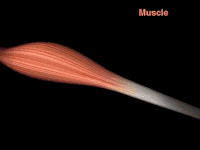The course addresses the English language needs of the students at the undergraduate level. The focus will be upon four categories: Prose, Poetry, Vocabulary, and Grammar. In addition to these, the last two units focus on developing the writing skills of students by including essay writing and report writing. The content of the text raises questions of how English is used in India versus how it ought to be used and thus engaging the debates about a “standard English” and the need of adapting English to the local cadence and culture of India. Similarly, the British and American variations of the language are included to orient the students to broaden their view of English as an international language. Overall the course will focus upon the critical thinking faculties of the students concerning academic, linguistic, political, literary, and ethical concepts.

- Teacher: SAIKIRAN D
- Teacher: Dr TIMEE RONRA SHIMRAY
The main objective of this course is to initiate the student in understanding the in vitro study of the biological properties that contribute to the prevention, diagnosis, prognosis and monitoring of diseases and disease states in humans. As well to gain an understanding of the Fundamentals of Nutrition through an examination of the identity, acquisition, and utilization of the nutrients and the science of nutrition their action, interaction, and balance in relation to health and disease

- Teacher: Dr. PRATHYUSHA YAMARTHI
The course “Nutrition
and Health” provides a fundamental knowledge about the importance of nutrition
in the daily life and health. This course give us a complete concept about the
importance of food and food habits, nutritional components and requirement, recommended
daily allowances, balance diet, meal planning, importance of exercise and
sleep, assessment methods for fitness and nutritional requirement during
adolescence

- Teacher: Dr. SRINATH NAGANATHAN
- Teacher: Dr. PRATHYUSHA YAMARTHI
Plant biotechnology combines genetics, molecular biology, and plant science to enhance agricultural practices and develop new plant varieties with desirable traits. It plays a crucial role in applications such as developing nutritionally enhanced foods, enabling sustainable agricultural production, and engineering plants for industrial and medical purposes

- Teacher: Dr K. DEEPTHI PRIYA
Spectroscopy is the study of the electromagnetic radiation with matter. Electromagnetic radiation covers a wide range of frequencies from gamma rays to radio frequencies. Depending on the frequency of radiation interacting with the matter, one can have different forms of spectroscopy. One of the objective of learning different spectroscopic techniques is to monitor the structural properties of matter. In this course, the fundamental principles of the different forms of spectroscopy will be elaborated in a unified way from both theoretical and experimental viewpoints. Application of these different spectroscopic methods for the elucidation of molecular structure will also be discussed. The structural and dynamic aspects of spectroscopy are fundamental to physics, chemistry and biology. Thus, this course will provide a thorough conceptual understanding for these branches of science. The course material also covers the fundamental principle of chromatography. In addition, the course details various chromatographic methods and how these are applied to a wide range of analytes.

- Teacher: Dr. SATABDI ROY